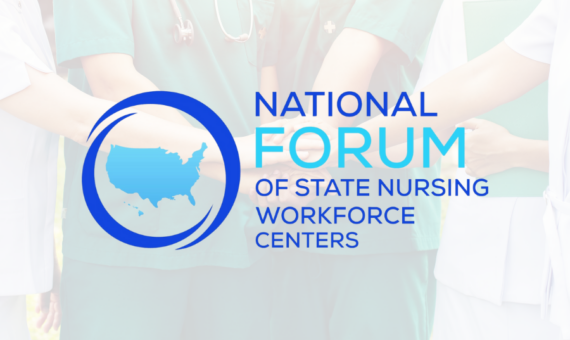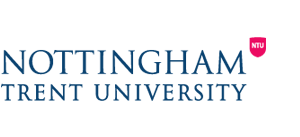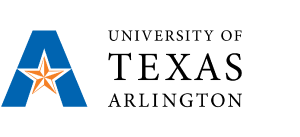The US healthcare landscape is undergoing significant changes in 2024, driven by technological advancements, policy shifts, and economic factors. This article explores critical insights from a recent McKinsey study, outlining the impact on stakeholders and health systems, the introduction of healthcare services and technology (HST), and the growth of pharmacy services related to the US healthcare system.
The Impact on Universities and Nursing Students
Amidst the evolving healthcare system, a growing realization emphasizes that universities should play a more active role in shaping nursing students’ career paths. According to 2023 data released by the American Association of Colleges of Nursing (AACN), the number of students in entry-level baccalaureate nursing programs decreased by 1.4% in 2022, ending 20 years of enrollment growth in programs designed to prepare new registered nurses (RNs). The decline in nursing enrollment, partly due to uncertainty in placements after the third year, underscores the need for educational institutions to secure career pathways. Offering guaranteed clinical placements is a strategic move to attract more students to pursue nursing careers, helping address the industry’s growing demand for skilled healthcare professionals.
Among the complexities of managing clinical placement experiences, InPlace Software and InPlace Network emerge as beacons of efficiency. By offering a unified, end-to-end solution for healthcare and university partners, we empower both parties to navigate clinical placement challenges seamlessly. As educational institutions strive to pave clearer career paths for their students, InPlace stands out as a critical ally in creating a more efficient, streamlined, and controlled process. Explore how InPlace Software can help your university.
Medicaid Enrollment and Healthcare Reforms
McKinsey’s study forecasts a potential decline of ten million enrollees in Medicaid over the next five years, mainly attributed to recent legislative changes allowing states to redetermine eligibility. States may explore refined eligibility determination methods, potentially integrating technology-driven solutions for a more efficient process. Given the anticipated decline in Medicaid enrollment and the imperative to counter escalating costs, there is a heightened focus on implementing targeted cost containment measures. Healthcare providers and organizations will likely prioritize precision, cost-effectiveness, and process optimization to navigate financial challenges adeptly. The US government’s investment in containing labor costs and adopting workflow technology underscores a broader trend toward increased technology adoption in healthcare operations, signaling the integration of solutions to boost overall operational effectiveness.
Managed Care Duals Population
The managed care duals population, individuals eligible for both Medicaid and Medicare, emerges as a significant opportunity for healthcare funders. The McKinsey study predicts substantial growth in this segment, creating avenues for expansion and increased profitability. Effective management and care delivery could result in optimized reimbursement structures and improved financial outcomes. Given the potential complexity of healthcare needs in this population, providers and universities may expect an increased focus on addressing social determinants of health. Programs and interventions to improve social and economic factors influencing health outcomes may become a priority. Universities offering healthcare-related programs such as nursing and social work may see opportunities for students to gain valuable experience managing the healthcare needs of diverse and complex patient populations. Programs and curricula may also evolve to address the challenges and considerations of caring for individuals with dual Medicaid and Medicare eligibility.
Payer and Health System Dynamics
The study outlines a shift in healthcare funders’ profit pools towards government segments, which are expected to be 65% larger than commercial segments by 2027. While Medicaid faces potential enrollment declines, Medicare Advantage is poised for growth. Health systems, buoyed by transformation efforts, are projected to experience an 11% compound growth rate from 2023 to 2027, recovering from the impact of inflation and labor shortages.
Nursing students can anticipate a heightened demand for specialized skills, particularly in geriatrics, chronic care management, and population health, aligning with the growth and transformation efforts within health systems. The evolving US healthcare landscape emphasizes holistic care and care coordination, prompting nursing students to develop skills in patient advocacy, interdisciplinary collaboration, and efficient care coordination. Additionally, the projected surge in healthcare technology adoption highlights the increasing importance for nursing students to integrate skills related to electronic health records, telehealth, and health information systems into their practice.
Healthcare Services and Technology (HST) Sector
HST companies specialize in providing healthcare organizations with advanced solutions, including data analytics, telemedicine, and AI, to enhance efficiency, reduce costs, and improve patient care. Healthcare organizations hire HST companies to leverage these technologies, ensuring they stay current, make informed decisions, and navigate the complexities of the evolving healthcare landscape. The HST sector is the fastest-growing subset in healthcare, with an estimated 12% growth rate from 2022 to 2027. Software, platforms, data, and analytics are projected to lead this growth. The study observes an initial recovery in the HST market in 2023, supported by lower wage pressure and increased technology adoption. Nursing schools can expect a shift towards integrating advanced technologies into education, adapting curricula to industry trends, fostering collaborations with HST companies, and preparing students for technology-driven roles in the evolving healthcare landscape.
Pharmacy Services and Future Trends
Pharmacy services continue to evolve, with specialty pharmacies experiencing rapid growth. McKinsey predicts a 5% annual growth in total pharmacy dispensing revenue, reaching $700 billion by 2027. Specialty pharmacy, driven by innovations in therapies and expanding pipelines, is anticipated to contribute significantly to this growth. Stakeholders in healthcare, including funders, can explore opportunities for strategic investments and partnerships in the evolving pharmacy landscape.
US Healthcare Landscape in 2024
As the healthcare landscape transforms, universities, healthcare providers, nursing schools, and stakeholders must adapt to collaborative, technology-driven, and efficient approaches.
InPlace Software stands out as an essential ally in streamlining clinical placement processes. At the same time, strategic investments and partnerships in technology, care delivery, and pharmacy services are critical for navigating the evolving healthcare landscape.
Contact us today, and learn how we can help you navigate








